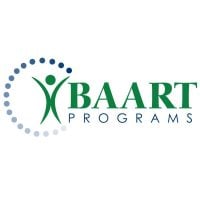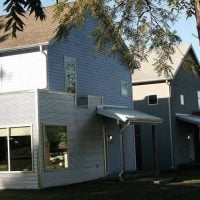The Lutheran Home
Drug Rehab Center in Omaha, Nebraska
- Opioid Addiction
- Dual Diagnosis
- Drug Addiction
- Alcoholism
The Lutheran Home in Omaha, Nebraska, offers comprehensive and individualized treatment for addiction and substance abuse, incorporating medical, psychological, spiritual, and social elements, as well as relapse prevention services, and is accredited by CARF and a member of NAATP, winning several awards for their evidence-based care.
Multiple patients have reported The Lutheran Home as permanently closed.
Research other rehabs in Omaha, Nebraska, or get help finding an open facility.
Our experts will find you an alternative facility.
(888) 674-0062 24/7 Free, Confidential, Expert HotlineAbout The Lutheran Home in Nebraska
The Lutheran Home in Omaha, Nebraska, has been providing care for individuals suffering from addiction and substance abuse since the 1960s. Lutheran Home serves adults 18 years and older, providing a tranquil setting for recovery. Their philosophy is grounded in creating a strong therapeutic community that allows its members to make significant and lasting changes in their lives through individualized counseling, group therapy and spiritual care.
The Lutheran Home provides a comprehensive treatment program for individuals dealing with addiction and substance abuse. Their approach is unique in its focus on the whole person, incorporating medical, psychological, spiritual and social elements into the recovery process. They address the physical and psychological aspects of addiction by offering individual and group therapy, medication management and family therapy services that promote healthy recovery. Additionally, their caregivers provide comprehensive relapse prevention services to help individuals stay sober and healthy.
The Lutheran Home is accredited by the Commission on Accreditation of Rehabilitations Facilities (CARF) and is a member of the National Association of Addiction Treatment Providers (NAATP). They have won numerous awards such as the Omaha Magazine, Best of Omaha Editor’s Choice Award in 2014 and 2015, and the Healthgrades Five-Star Quality Award. Lutheran Home is dedicated to providing evidence-based treatment and is continually looking for innovative ways to provide holistic and individualized care.
Genders
Ages
Modality
Additional
Conditions and Issues Treated
Opioid addiction treatment should be done in a medically supervised drug rehab. While taking opioids, users will typically use other substances to enhance the effects of opioids or to reduce the adverse effects of opioid use. Opioid addiction treatment will include detoxification and drug rehab counseling to help both the user and their loved ones learn how to live a successful sober lifestyle.
Treatments such as methadone, buprenorphine, and naltrexone are three medications that can help treat opioid addiction. These drugs work on the brain’s pleasure center and reduce cravings and the effects of illicit opioids such as heroin. These drugs can be either given orally or by injection. Individual drug rehab counseling sessions can be helpful to discuss any questions or concerns with the drug treatment program. This counseling will also help the user set goals for when they finish drug rehab.
Opioid addiction recovery is a long process. Many of the changes to the brain caused by opioid use cannot be undone, but with time and the proper treatment, a person can return to normal function. After detox, treatment will include drug rehab counseling and entering a halfway house or sober living community. Aftercare is critical to long-term recovery, as it helps the user avoid relapsing and entering back into drug rehab.
Levels of Care Offered
This center offers a variety of custom treatment tailored to individual recovery. Currently available are Drug Rehab, Residential, Sober-Living / Half-Way, with additional therapies available as listed below.
Sober living homes are halfway houses where people can stay for a while and stabilize themselves—no drinking or drugging, paying rent/bills, etc. There is no minimum or maximum stay, but as long as you follow these simple guidelines, it’s an excellent chance to move forward into sobriety!
For many, this is a new beginning, a reset. The opportunity to establish new routines and healthy habits that will result in long-term sobriety is given to those who have lost everything due to addiction. It’s also common for people to move from one sober living home to another, each step closer to a drug and alcohol-free life.
Residential treatment programs are those that offer housing and meals in addition to substance abuse treatment. Rehab facilities that offer residential treatment allow patients to focus solely on recovery, in an environment totally separate from their lives. Some rehab centers specialize in short-term residential treatment (a few days to a week or two), while others solely provide treatment on a long-term basis (several weeks to months). Some offer both, and tailor treatment to the patient’s individual requirements.
Therapies & Programs
No single treatment works for all addicts; therefore, the goal of treatment and therapy should be to find what works best for each individual. Some people requiring addiction treatment may only need a few weeks of inpatient care. Others will require long-term residential care. Tolerance and withdrawal levels vary from person to person and thus affect the intensity of the treatment needed.
If an individualized approach to treatment and therapy is not offered, addicts may fail to reap benefits from their efforts. Professionals must customize plans according to their patient’s needs, limitations, and strengths. The goal of all forms of addiction treatment should be for addicts to find healthy ways to cope with their addiction and its underlying causes.
The therapies usually include siblings, children, and parents who are involved in their daily lives. These sessions are vital because they address past issues that may have hampered an addict’s or alcoholic’s recovery and provide support at a crucial time!
One of the most critical aspects of family therapy is helping addicts’ loved ones see their situation in a new light. It’s also one of the most challenging things a family can do when a loved one struggles with addiction or alcoholism.
Group therapy is held in a safe, controlled setting where patients can feel comfortable sharing their struggles and gaining perspective through shared conversations. It takes place in a group rather than one on one to prevent feelings of isolation or being unique in their situation while creating an environment for addicts at The Lutheran Home to develop fellowship, accountability, and support. Group therapy is an important tool in recovery that prevents cravings that prompt a return to active addiction.
Life skills training is beneficial for addicts in recovery because it helps them learn how to take care of themselves and improve their quality of life, which can promote feelings of purpose and motivation.
This type of treatment works by teaching individuals life-enhancing skills that support positive living, including:
- Healthy lifestyle habits
- Skills to effectively manage stress
- Effective communication skills to help them get their needs met without turning to drugs or alcohol
- Money management and budgeting skills so they can continue to take care of themselves after treatment ends.
Additional Details
Specifics, location, and helpful extra information.
Omaha, Nebraska 68105 Phone Number(402) 346-3344 Meta DetailsUpdated November 25, 2023
Staff Verified
The Lutheran Home Patient Reviews
There are no reviews yet. Be the first one to write one.
Omaha, Nebraska Addiction Information
Despite a total population of slightly less than 2 million residents, methamphetamines are one of the most commonly abused illicit substances in the state. Alcohol abuse is so common that a news article once referred to Nebraska as "America's 9th drunkest state". Although opioid abuse rates in Nebraska are not as high as those in other states, opioids are still involved in most overdoses.
Omaha, NE has been hit hard by drug addiction and abuse in recent years. About 5% of the population is addicted to drugs or alcohol. Marijuana is the most commonly abused drug in Omaha. In 2017, there were 936 people admitted to treatment centers for marijuana abuse. Crime rates have gone up, and there have been more cases of child abuse and neglect.
Treatment in Nearby Cities
- Milford, NE (66.3 mi.)
- Wahoo, NE (35.0 mi.)
- Oneill, NE (162.0 mi.)
- Arlington, NE (25.3 mi.)
- Alliance, NE (362.1 mi.)
Centers near The Lutheran Home
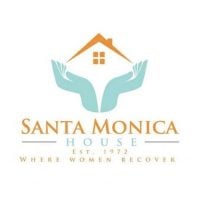
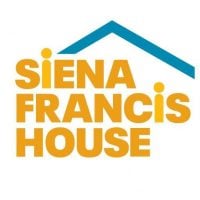
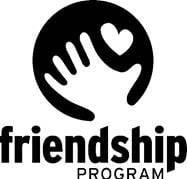
The facility name, logo and brand are the property and registered trademarks of The Lutheran Home, and are being used for identification and informational purposes only. Use of these names, logos and brands shall not imply endorsement. RehabNow.org is not affiliated with or sponsored by The Lutheran Home.

